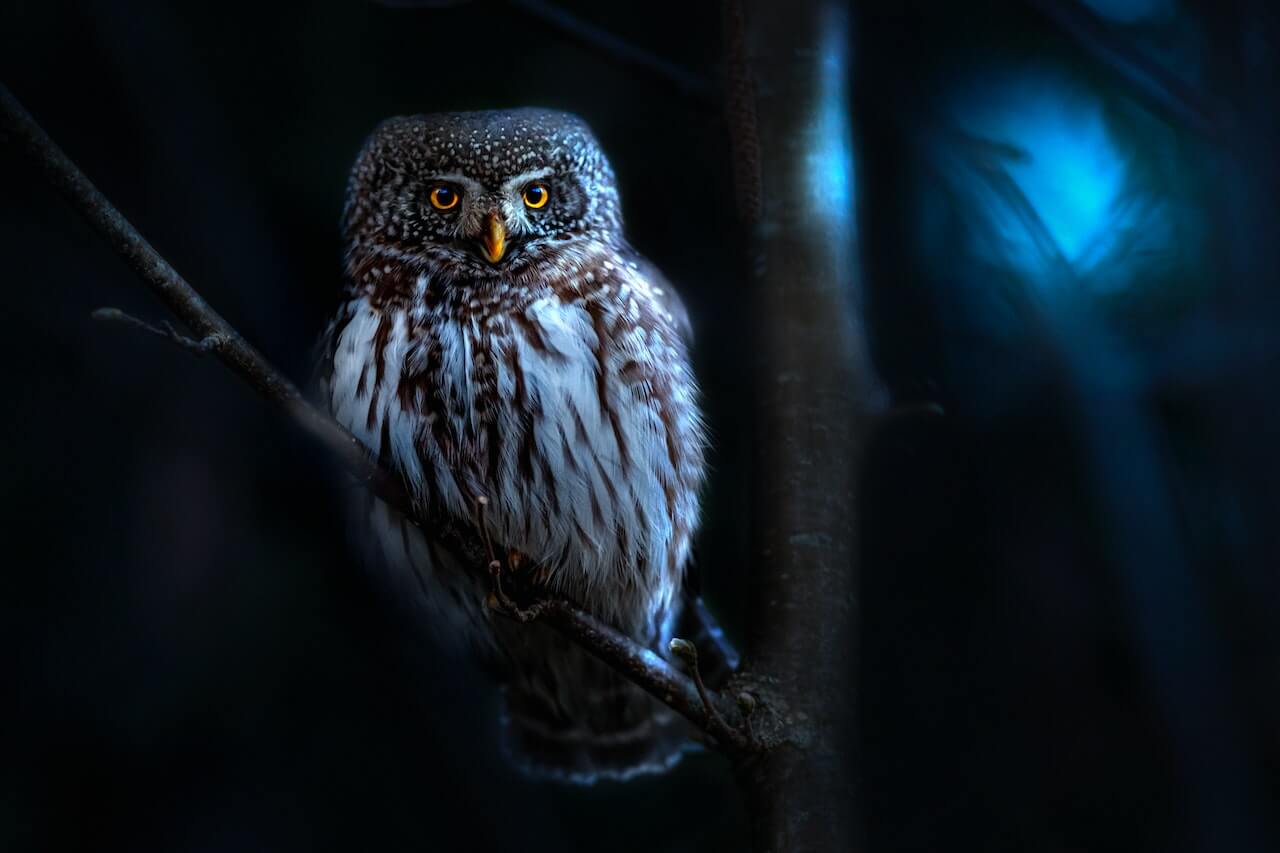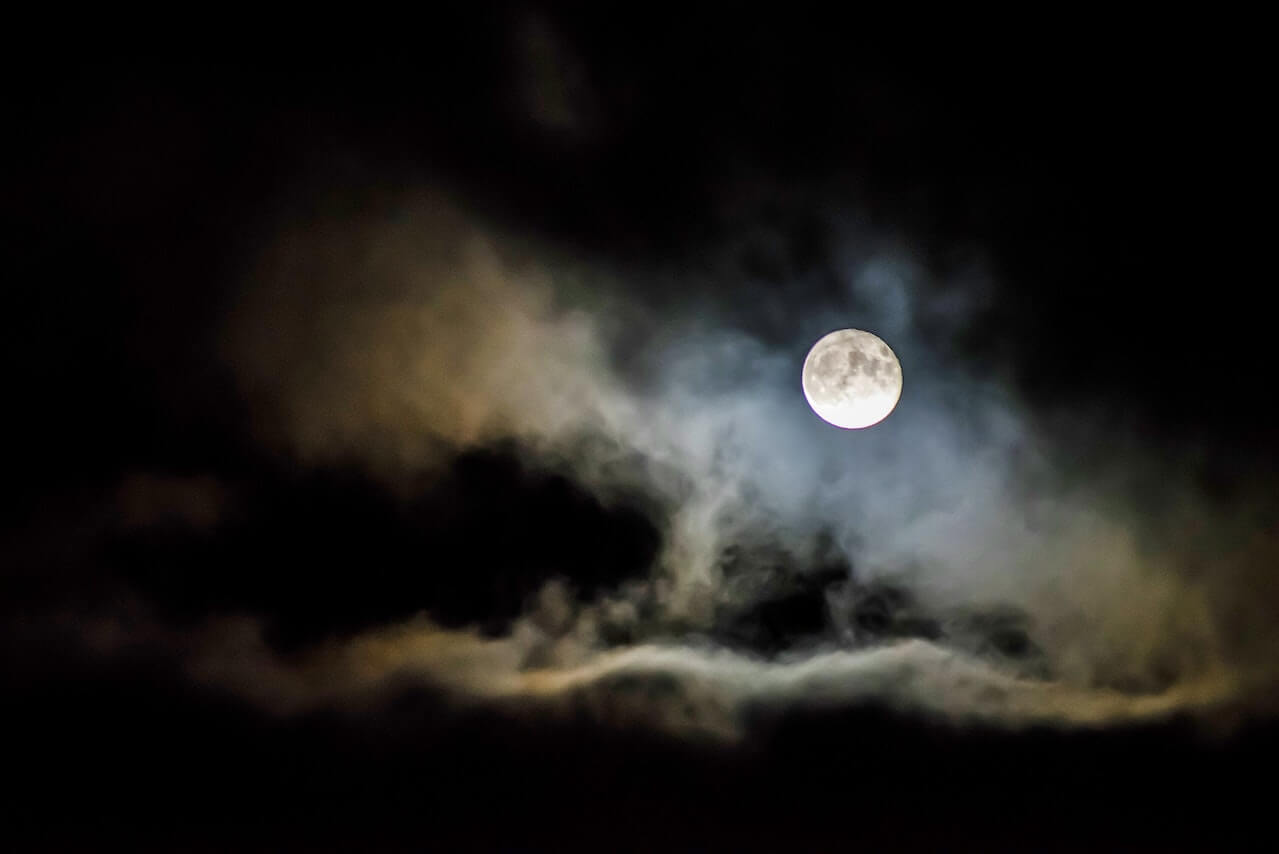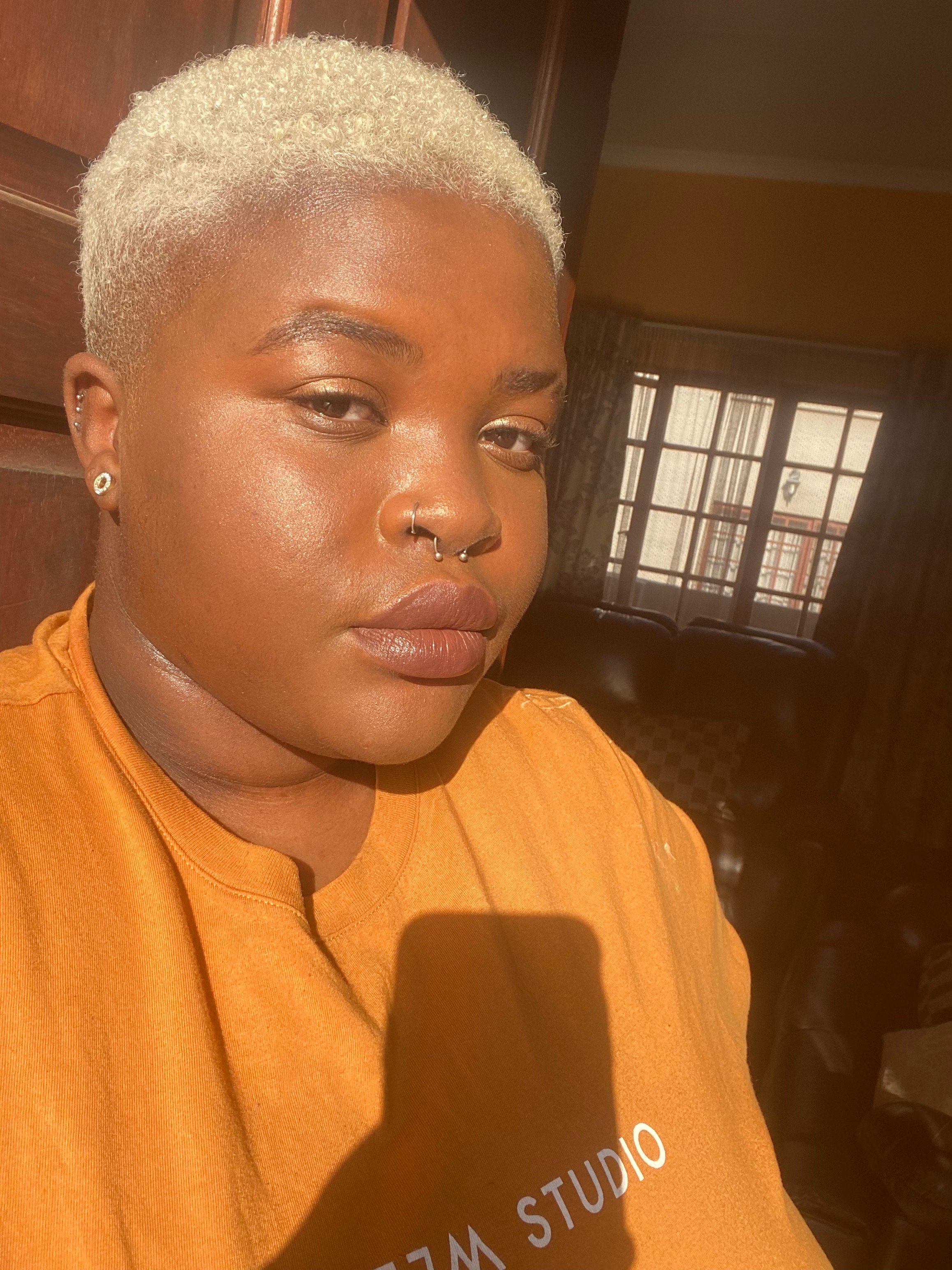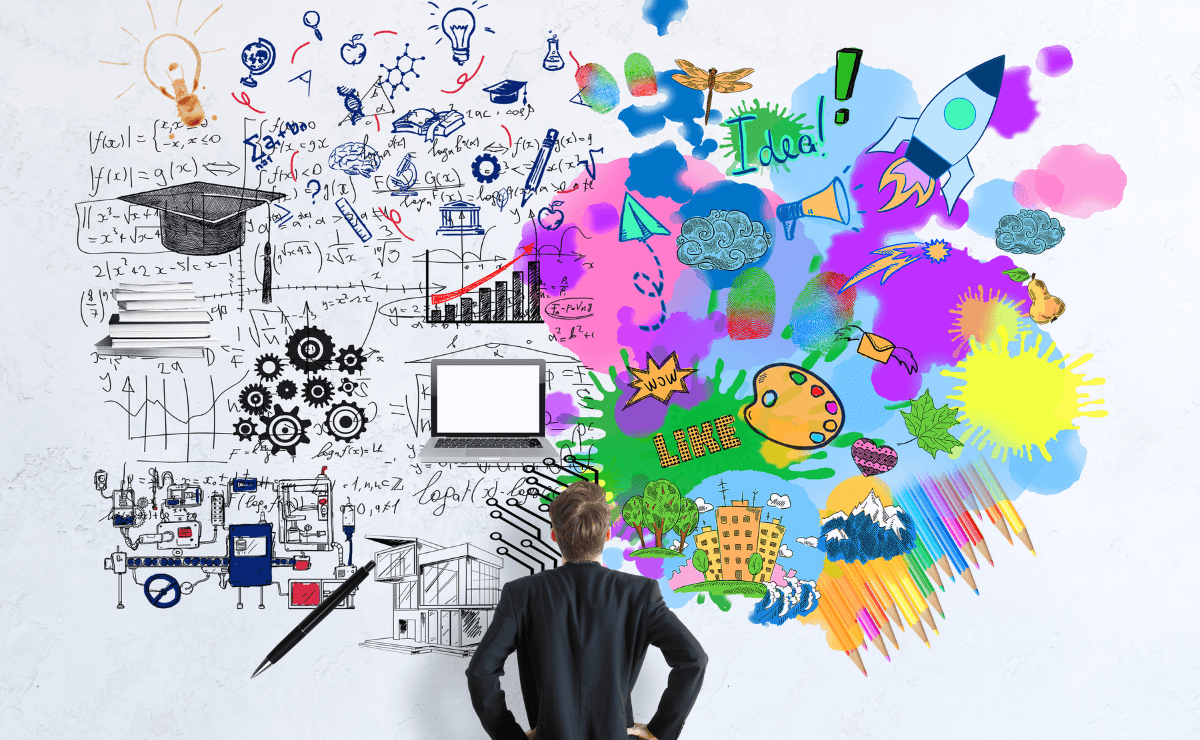I won’t lie to you - I really thrive at nighttime. Genuinely, the only thing standing between me and a stable 9–5 job is the fact that most days I’m on my way to bed by the time most people are waking up for work.
It’s truly amazing: I’ll spend my entire day barely maintaining any semblance of being a functioning human adult. But as soon as the clock strikes 10 p.m., I suddenly have all of the executive functioning skills and focus. Case in point, right now, as I write! It’s exactly 10:46 p.m., and I’m the most awake I’ve felt all day.
Don’t get me wrong - it can be frustrating. But after failing (again) to “improve my sleep hygiene,” I’ve decided to lean into my nocturnal ways, and it’s honestly been… pretty great. (I have a hunch that this was the cure I needed for my burnout!)
While it’d be easy to blame my nighttime productivity habits on just ADHD, my neurodivergence only tells part of the story. So, if you’re like me and you’re curious about why you work better at night, keep reading. This article will investigate why some people get more things done when the rest of the world is asleep — and how ADHD is only the tip of the iceberg.
Too long; didn’t read
- Some people are genetically predisposed to being a night owl.
- Nighttime productivity can be attributed, at least in part, to the lack of distractions and lower levels of noise that night has to offer (compared to daytime.)
- While some night owls have reported health issues, mood disturbances, and poorer performance from sleeping late, others experience more attention, focus, and creativity.
- Undiagnosed sleep disorders can be mistaken for a preference for the evening, so it’s important to uncover these.
- Common ADHD traits, like distractibility or difficulties with sensory processing, may contribute to a preference for working at night.
6 reasons why you might be more productive at night
If you’re a person whose brain works much better at night, then you know that revenge bedtime procrastination isn’t the whole story.
1. You’re a natural night owl.

If your parents are anything like mine, they may have told you that “night owls don’t exist.” And that even if they do exist, you can "train yourself to be an early bird" instead. However, this is far from the truth.
But before we go into that, let’s get down to some terminology:
Circadian rhythm
Put simply, a circadian rhythm is like your body’s internal clock that regulates biological processes and activities across a 24-hour cycle. This “body clock” or “biological clock” guides what’s happening on the inside of your body by keeping track of what’s going on outside of your body. It influences when you feel awake and sleepy, as well as when you’re most alert or hungry.
In other words, your brain regulates your behaviors by relying on environmental cues. (For example, whether it’s light or dark outside, how long you’ve been awake, and whether or not you’re safe.)
Chronotype
Everyone has a chronotype! Your chronotype is your natural preference for when you’re most active and alert during the day... or night. It’s typically the time of day when you’re most productive.
This is where the terms “early bird” and “night owl” come from!1
- Larks are the early birds. They tend to be more productive and alert early in the day. Larks are thought to have an internal day that’s slightly shorter than 24 hours.2,3
- Night owls, as the name suggests, reach their peak alertness and productivity much later in the day. The internal day in night owls is believed to be slightly longer than 24 hours.2,3
2. There are fewer distractions at night.
For some people, working better at night quite simply comes down to it being quieter! Since most people are asleep, we receive fewer calls, texts, meetings, and social media notifications.
Personally, I like working at night because I can’t hear cars driving by outside. Additionally, everyone in my living space is asleep, so I’m not bothered by any noise. If you’re easily distracted or struggle with sensory processing, nighttime is a great time to work.
3. You’re more creative later in the day.
The default mode network (DMN) refers to resting brain function.4 While it was previously believed that the “resting” brain uses less energy than when focusing on a task, more recent studies indicate that the brain remains active, but in different ways, instead of resting.5 The DMN is most active when the brain is resting and deactivates when focusing on a task or goal.
The brain structures in the DMN are linked to internal thoughts, memory, and theory of mind. This leads to mind-wandering and unrelated thoughts during tasks.6 The DMN is more active at night, which might explain why some people are most creative then.
4. You’re less stressed in the evenings.

I’m probably outing myself here, but does anyone else find it difficult to juggle simple self-care tasks and work? I really struggle to take care of my basic needs and make sure I’m productive and focused professionally.
It may seem strange to think of everyday activities like going to the gym, a doctor’s appointment, dating, or even cooking as actual stressors. But, these tasks need careful planning and implementation and use up a lot of energy. They can disrupt your workflow and make you less productive. So, working at night can, for some people, be a way to work uninterrupted, allowing for more consistency.
Additionally, the body releases less of the stress hormone cortisol at nighttime.7 This dip happens in preparation for sleep and makes people feel much more relaxed during the night, which could be another benefit of working at night.
5. You have an undiagnosed sleep condition.
While some night owls may simply prefer working at night, others may have a sleeping disorder without knowing it. It’s crucial to identify sleep disorders and differentiate them from your chronotype. Whether you’re a morning or night person, having a regular sleep schedule is important, and sleep deprivation can be dangerous. But what is a sleep disorder?
As explored above, the body runs on an innate biological clock known as the circadian rhythm. If this rhythm gets disrupted for a prolonged time, it can be considered a circadian rhythm sleep disorder, which can cause a range of symptoms from daytime sleepiness to depression.
Delayed sleep phase syndrome (DSPS)
Around 10% of the population has delayed sleep phase syndrome (DSPS), a common circadian rhythm sleep disorder.8 People affected by DSPS naturally tend to sleep several hours later than the average person. Some people might feel sleepy between 1 a.m. and 3 a.m. or even closer to sunrise in some extreme cases.9
Research suggests that some people may have a genetic predisposition to developing DSPS. However, environmental factors also play a role. Treatment includes adjusting sleep patterns with natural light, avoiding artificial light, using CBT, and possibly melatonin.
Other sleep disorders
While DSPS is the most common circadian rhythm sleep condition, other disorders can also cause sleep disruption, resulting in sleep deprivation or excessive daytime sleepiness.
These include:
- Circadian rhythm disorders
- Sleep-disordered breathing conditions (e.g., sleep apnea)
- Restless leg syndrome
- Narcolepsy
- Insomnia
6. You have ADHD.
Last but not certainly least, the tendency to work at night could be attributed to ADHD! For example, ADHDers are more easily distracted and have been found to be more sensitive to sound. People with ADHD tend to have a more active default mode network (DMN) and higher rates of sleep conditions than neurotypicals. Yes, ADHD is definitely the gift that keeps on giving.
Being a night owl can have benefits for some people, but for others, it can cause health problems, mood issues, higher mortality rates, and lower performance quality.10
That said, it is not all bad!
Research has shown that you can reset your sleep-wake cycle without medication. You can do this through strategic daylight exposure, having fixed meal times, limiting your caffeine intake, and getting regular exercise.10
Implementing these interventions can positively impact mental health and performance.
I’ve found using blue light glasses particularly helpful, though, in true ADHD fashion, I’ve lost those and need to find them…
Final thoughts
Since you’re reading this piece, I assume you’re more of a night owl than a lark, and I hope this article has offered some insight into why you are the way you are.
Now, I’m definitely not pushing people to accept defeat and lean into sleeping late. But if it doesn’t cause you too many issues and you can adjust your work to match your peak hours, then there’s nothing wrong with being a night owl! After all, while the rest of the world is hustling, grinding, and in bed by 10 p.m., they need us to keep things running at nighttime, too.
If you need to improve your sleep, I hope this article can help you a little, too!
That said, no matter which side you are on, remember: If you can get a decent amount of sleep, that is half the battle won.
Sources
1 Journal of Veterinary Medical Education | Correlation of Chronotype (Lark versus Night Owl Status) with Mind-Set and Effect of Chronotype on Examination Performance in Veterinary School (2022)
2 Nat Sci Sleep | Chronotype differences in circadian rhythms of temperature, melatonin, and sleepiness as measured in a modified constant routine protocol (2009)
3 Int J Mol Sci | Circadian Disruption and Mental Health: The Chronotherapeutic Potential of Microbiome-Based and Dietary Strategies (2023)
4 PLOS ONE | Shaped by the Past: The Default Mode Network Supports Cognition that Is Independent of Immediate Perceptual Input (2015)
5 PLOS ONE | Altered Oscillation and Synchronization of Default-Mode Network Activity in Mild Alzheimer’s Disease Compared to Mild Cognitive Impairment: An Electrophysiological Study (2013)
6 Neurosci Bull | Wandering Minds with Wandering Brain Networks (2018)
7 Int J Environ Res Public Health | Relationship between Cortisol Changes during the Night and Subjective and Objective Sleep Quality in Healthy Older People (2020)
8 Cell | Mutation of the Human Circadian Clock Gene CRY1 in Familial Delayed Sleep Phase Disorder (2017)
9 J Clin Sleep Med | Clinical practice guideline for the treatment of intrinsic circadian rhythm sleep-wake disorders: advanced sleep-wake phase disorder (ASWPD), delayed sleep-wake phase disorder (DSWPD), non-24-hour sleep-wake rhythm disorder (N24SWD), and irregular sleep-wake rhythm disorder (ISWRD). An update for 2015 (2015)
10 Sleep medicine | Resetting the late timing of ‘night owls’ has a positive impact on mental health and performance (2019)







